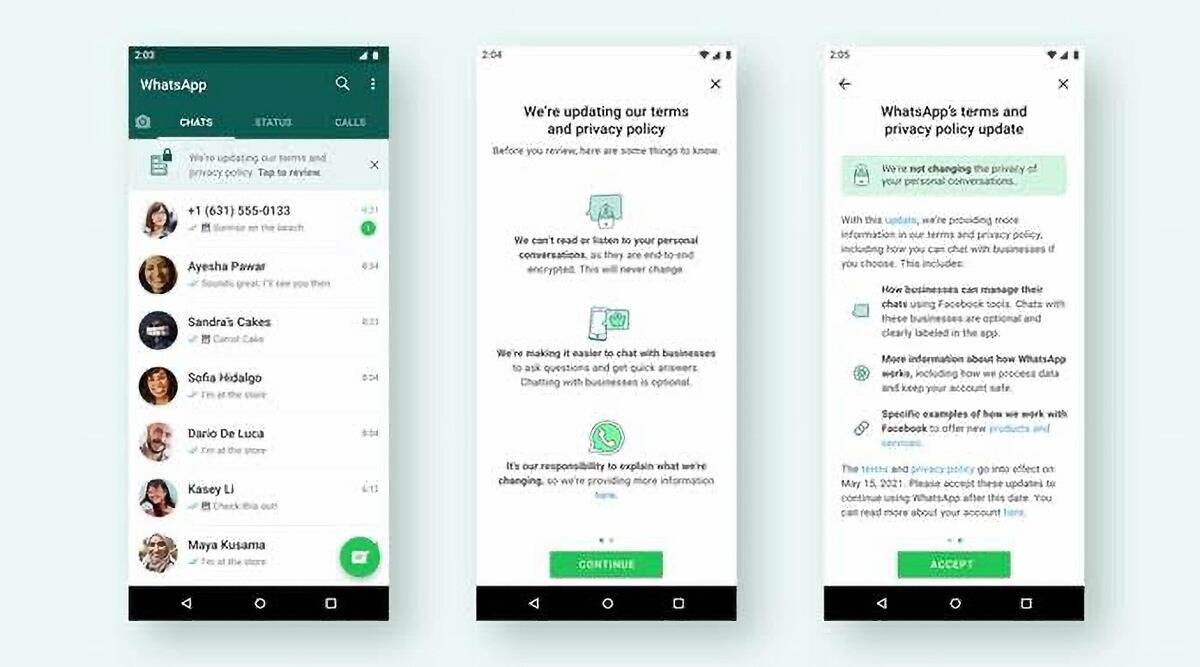News
WhatsApp Decides Not To Limit Users Who Don’t Accept Its New Privacy Policy
It seems that the backlash has been strong enough to make executives at Facebook reconsider their decisions because the latest announcement from the company contradicts the previous one.

This year in February, Facebook-owned WhatsApp stated in an FAQ on its website that users who didn’t accept its new privacy policy by May 15th would lose access to certain features, such as the ability to send or read messages from the app.
The announcement sparked a wave of protests on Facebook, Twitter, and other social media platforms, with some users threatening to leave the messaging and voice-over-IP service app for more privacy-oriented alternatives, such as Signal, Telegram, or Threema.
It seems that the backlash has been strong enough to make executives at Facebook reconsider their decisions because the latest announcement from the company contradicts the previous one.
“Given recent discussions with various authorities and privacy experts, we want to make clear that we will not limit the functionality of how WhatsApp works for those who have not yet accepted the update,” said a WhatsApp spokesperson in a statement to The Verge.

One reason why the new policy caused so much outrage was that many WhatsApp users believed that they would be required to share their phone numbers and other sensitive information with various third parties.
In reality, the policy update affects mainly businesses using the platform to sell their goods and services using the messaging app, allowing them to see what you’re saying and use this information for their own marketing purposes.
“We will continue to remind users from time to time and let them accept the update, including when they choose to use relevant optional features like communicating with a business that is receiving support from Facebook,” the WhatsApp spokesperson added.
The entire rollout of the policy update has been mishandled, to say the least, with WhatsApp seemingly not fully realizing how much more security and privacy-oriented have its users become since the messaging app started sharing user data with Facebook in 2016.
News
Rabbit Expands Hyperlocal Delivery Service In Saudi Arabia
The e-commerce startup is aiming to tap into the Kingdom’s underdeveloped e-grocery sector with a tech-first, locally rooted strategy.

Rabbit, an Egyptian-born hyperlocal e-commerce startup, is expanding into the Saudi Arabian market, setting its sights on delivering 20 million items across major cities by 2026.
The company, founded in 2021, is already operational in the Kingdom, with its regional headquarters now open in Riyadh and an established network of strategically located fulfillment centers — commonly known as “dark stores” — across the capital.
The timing is strategic: Saudi Arabia’s online grocery transactions currently sit at 1.3%, notably behind the UAE (5.3%) and the United States (4.8%). With the Kingdom’s food and grocery market estimated at $60 billion, even a modest increase in online adoption could create a multi-billion-dollar opportunity.
Rabbit also sees a clear alignment between its business goals and Saudi Arabia’s Vision 2030, which aims to boost retail sector innovation, support small and medium-sized enterprises, attract foreign investment, and develop a robust digital economy.
The company’s e-commerce model is based on speed and efficiency. Delivery of anything from groceries and snacks to cosmetics and household staples is promised in 20 minutes or less, facilitated by a tightly optimized logistics system — a crucial component in a sector where profit margins and delivery expectations are razor-thin.
Despite the challenges, Rabbit has already found its stride in Egypt. In just over three years, the app has been used by 1.4 million customers to deliver more than 40 million items. Revenue has surged, growing more than eightfold in the past two years alone.
Also Read: Top E-Commerce Websites In The Middle East In 2025
CEO and Co-Founder Ahmad Yousry commented: “We are delighted to announce Rabbit’s expansion into the Kingdom. We pride ourselves on being a hyperlocal company, bringing our bleeding-edge tech and experience to transform the grocery shopping experience for Saudi households, and delivering the best products – especially local favorites, in just 20 minutes”.
The company’s growth strategy avoids the pitfalls of over-reliance on aggressive discounting. Instead, Rabbit leans on operational efficiency, customer retention, and smart scaling. The approach is paying off, having already attracted major investment from the likes of Lorax Capital Partners, Global Ventures, Raed Ventures, and Beltone Venture Capital, alongside earlier investors such as Global Founders Capital, Goodwater Capital, and Hub71.
























